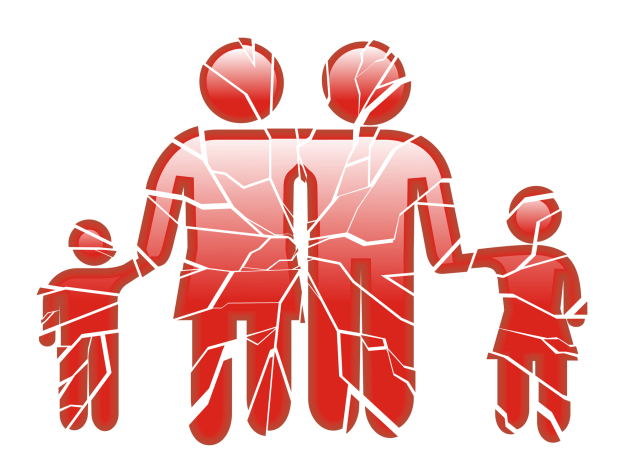Social media as the engine of revolution
The concept of social media started when humans begin to communicate. They express their ideas in cave paintings and ancient stone scripts.
The Plight of Modern Family; Gender Equality and contemporary changes
The human society is comprised of men and women. The society has given specific roles based on the gender which has now changed dramatically.
Sri Lankan Education System Needs an Overhaul
Education is a basic need for a human being. The right to education is recognized in the Universal Declaration of Human Rights. We get education until we die.
Climate Change and the Future of Mankind
Since the beginning of mankind, humans tried to master the environment around them. Now thousands of years later in the 21st century it seems that the humans have finally conquered the Mother Nature
Online Life; Is it safe?
Information and communication technology helps man to connect to one another in every aspect of life today from financial transactions to meeting friends. This interlinked world may appear to be fast and convenient but have we ever wondered whether our privacy and safety is ensured in it?
Thursday, December 31, 2015
Tiger Parenting; an Option Worth Considering
Saturday, December 26, 2015
Population Crisis; What shall we do?
World’s population is now more than 7 billion and rising rapidly. It has reached that point one year ago in October 2011. As humans, we have an immense impact on planet earth so complications arise naturally with the rising population. Overpopulation is now a major challenge to the long list of obstacles faced by humankind.
- We don’t need much labor and human skills to generate wealth. Smart technologies, industries and production don’t need much labor. The way we create wealth is also changed. World relies more on smart technologies, financial industry and service sector which requires less human participation that age old industry and agriculture
- Depleting resources; Humans entirely dependent upon natural resources such as minerals, metals, oil and arable land. Now humans don’t have the steady supply of resources to generate wealth which helps to keep and increase population
Sunday, November 15, 2015
Terrorism, France and Beyond
- Operating region
- Ideology
- Specific goal
- An adversary
- Followers
- Support network and
- Sympathizers (sympathizers may turn into followers later)
Sunday, November 8, 2015
Ven. Maduluwawe Sobitha Thero; In Remembrance.
Tuesday, November 3, 2015
The Never Ending Saga of the Rioting University Students
- Adamant nature of the government and ministers when dealing with students should be changed. Government has a responsibility to ensure the well-being of students and they should be treated with respect.
- Government should give priority to the reasonable demands of students (most of demands in fact are reasonable)
- There should be a higher education policy and standardization of degrees and certifications by non-degree awarding institutions to solve the inter-institutional clashes once in for all. Recognition and validity of existing course should be retained if not improved.
- Rules of engagement of the police need to be radically changed. Poor riot control training and attitude resulted in many deaths in the past and continuous tarnishing of public image of police. Lack of negotiation skills of police officers is the main problem. Not one of the senior police officers has been trained on negotiation and conflict resolution. Without that a police officer will be a thug with license to kill as the current police media spokesperson has proved over and over again. Proper training and education will improve the situation. It is important to address the situation as soon as possible before another group of students become victims of police brutality.
Wednesday, October 28, 2015
Window Shopper
Desiring for something I cannot gain; My depressing experience. The story continues...
I am the lonely window shopper
looking at the most beautiful thing for sale
priceless jewel it is, fit for any crown
desiring it to be mine
everyday I imagined I'm the king with that crown
and cleaned the window of the shop and swept the floor
sat in a bench in front of the window
and did my bidding hour and hour
one day the "reserved" notice I've seen
some prince overbid me while I've not been
it is indeed your crown jewel your majesty
i shall keep away 'cause this is my destiny
me the window shopper have never learnt the lesson
not to desire a jewel while being a peasant
nevertheless I came to the conclusion
that my heart will fall and that jewel has no heart at all!!!
Sunday, October 18, 2015
Once Upon a Time in Syria; Analysis on Syrian Conflict.
Monday, October 5, 2015
Keeping Children Safe: Child Sexual Abuse Epidemic in Sri Lanka
Wednesday, April 29, 2015
The Poor Little 19th Amendment !!!
Article number
|
What shall be delivered
|
2
|
Right to information as a
fundamental right
|
3
|
Reduction of presidential term
to 5 years
|
4
|
Limiting the number of times
for election for presidency to 2
|
5
|
Presidential duties are listed.
President is considered as a symbol of national unity
|
6
|
President’s responsibility
towards parliament. but how to enforce if president has breached his
responsibility is not listed here. It should be only through the impossible
impeachment process
|
7
|
Changes to presidential
immunity. Although he cannot be brought to court, his conduct can be
questioned on suing attorney general. This can be used to build a public
opinion against a president who is violating his duties
|
10
|
A new chapter is added on constitutional
council who gives advices on how to appoint people for important positions
and the president deemed to follow it.
41A(6) – the president is
compelled to make appointments to the constitutional council. If he failed to
do so the council members shall be deemed to be appointed. This removed the
problem in the 17th amendment.
|
11
|
Changes to the executive.
42(3) – the PM is head of the
cabinet
43(1) determination of ministerial
positions by PM
44 – non cabinet ministers,
46 – limiting the cabinet to 30
and other ministerial positions to 40
|
12
|
Public service commission
|
16
|
Appointing AG and IGP shall be
done on the recommendations of the constitutional council
|
17
|
Limiting the parliament to 5
years
|
20
|
Every bill shall be given 14
days for the public to protest. The word every bill shall include emergency bill
is questionable
|
21
|
President is prevented from
going to a referendum for bills that are rejected by parliament.
|
23
|
Minimum age for contesting for
presidency is 35 years
|
25
|
Election commission
|
26
|
Election commissioner’s power
to control media organizations both state and private
|
































